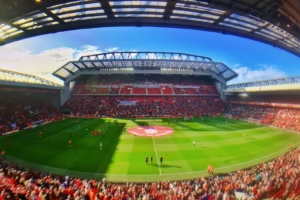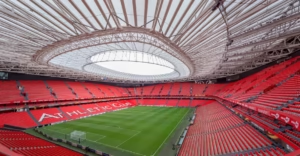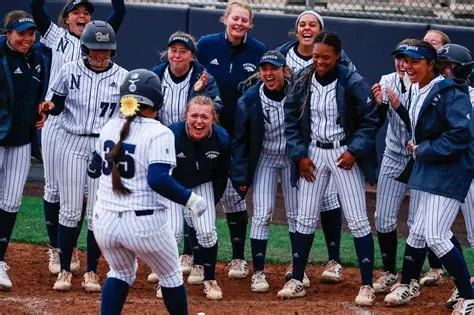“Epic Showdown: Liverpool vs Athletic Club – A Legendary Football Rivalry Revealed”1
Liverpool vs Athletic Club
A Historic Football Rivalry Between England’s Reds and Spain’s Lions
When Liverpool FC and Athletic Club Bilbao meet on the football pitch, it’s more than just a game—it’s a collision of two footballing philosophies, two passionate fanbases, and two clubs with deep-rooted identities that transcend the sport itself. From the banks of the Mersey to the shores of the Nervión, this fixture represents a unique meeting of cultures in European football.

Anfield, the legendary home of Liverpool FC, on a European night
A Rivalry Forged in European Competition
The history between Liverpool and Athletic Club dates back to their first competitive meeting in the 1983-84 European Cup. What began as a continental encounter soon revealed deeper connections between two clubs with remarkably similar values—passion, identity, and an unwavering connection to their local communities.
“When we play Athletic Bilbao, it’s special. They have the same passion for football as we do. Their fans create an atmosphere that rivals Anfield on its best nights.” — Steven Gerrard, Liverpool Legend
Shared Values, Different Cultures
Both clubs boast unique philosophies that set them apart in modern football. Liverpool’s “You’ll Never Walk Alone” ethos finds its Basque counterpart in Athletic Club’s “Con cantera y afición, no hace falta importación” (“With homegrown talent and local support, there’s no need for imports”). This shared commitment to identity has created mutual respect even amidst fierce competition.
Liverpool FC
Founded: 1892
Home: Anfield, Liverpool
Nickname: The Reds
European Cups: 6
Philosophy: Attacking football with passion
Athletic Club
Founded: 1898
Home: San Mamés, Bilbao
Nickname: Los Leones (The Lions)
La Liga Titles: 8
Philosophy: Basque-only player policy
Memorable Encounters Through History
1983-84 European Cup Quarter-Final
In their first competitive meeting, Liverpool emerged victorious with a 1-0 aggregate win. The match at Anfield featured a stunning performance from a young Ian Rush, whose goal sent Liverpool through to the semi-finals on their way to winning the competition that season.
2015-16 Europa League Round of 16
Athletic Club stunned Anfield with a 3-1 victory in the first leg. Despite Liverpool’s 1-1 draw in the return leg at San Mamés, the damage was done. This victory showcased Athletic’s pressing style that Jurgen Klopp would later describe as “nearly perfect.”

San Mamés, the home of Athletic Club, known as “The Cathedral” of football
Philosophies That Define Football
Liverpool’s Gegenpressing
- High-intensity pressing immediately after losing possession
- Quick transitions from defense to attack
- Full-backs as primary creative forces
- Organized chaos in the attacking third
- “Heavy metal football” under Klopp
Athletic’s Basque Identity
- Exclusive selection of Basque players
- Focus on youth development (Lezama academy)
- High-pressing, physically demanding style
- Emphasis on team cohesion over star power
- Cultural significance beyond football
Shared Footballing Values
- Passion as a tactical element
- Intimidating home atmospheres
- Connection between players and supporters
- Commitment to attacking football
- Resilience in adversity
Head-to-Head Statistics
Key Players to Watch
The Cultural Significance
Beyond football tactics and results, the Liverpool-Athletic matchup represents a fascinating cultural exchange. Both cities—Liverpool and Bilbao—are port cities with industrial histories that have transformed into cultural powerhouses. The passion of their supporters springs from deep community roots where football serves as both identity and escape.
When these teams meet, it’s not just about the players on the pitch but about two distinct football cultures. The famous Anfield atmosphere with its rendition of “You’ll Never Walk Alone” meets the equally impressive wall of noise at San Mamés where fans sing “Athletic, Athletic” with Basque pride.
Further Reading & Resources
What Makes This Fixture Special?
Unlike many modern football rivalries driven by hatred, the Liverpool-Athletic connection is built on mutual respect. Both clubs represent cities where football is woven into the cultural fabric. Their encounters showcase football at its purest—two teams playing with passion, honoring their traditions, and representing communities that live and breathe the game.
Looking to the Future
As football continues to globalize, fixtures like Liverpool vs Athletic Club become increasingly precious. They remind us of football’s roots in community identity. Both clubs face the challenge of maintaining their identities while competing at the highest level—Liverpool against state-owned clubs with unlimited resources, Athletic against the globalization of talent.
The next chapter in this rivalry promises to be as compelling as those that came before. With young talents emerging from both academies and managers committed to attacking football, future encounters will continue to showcase why this matchup holds a special place in European football.
Share this content:






1 comment